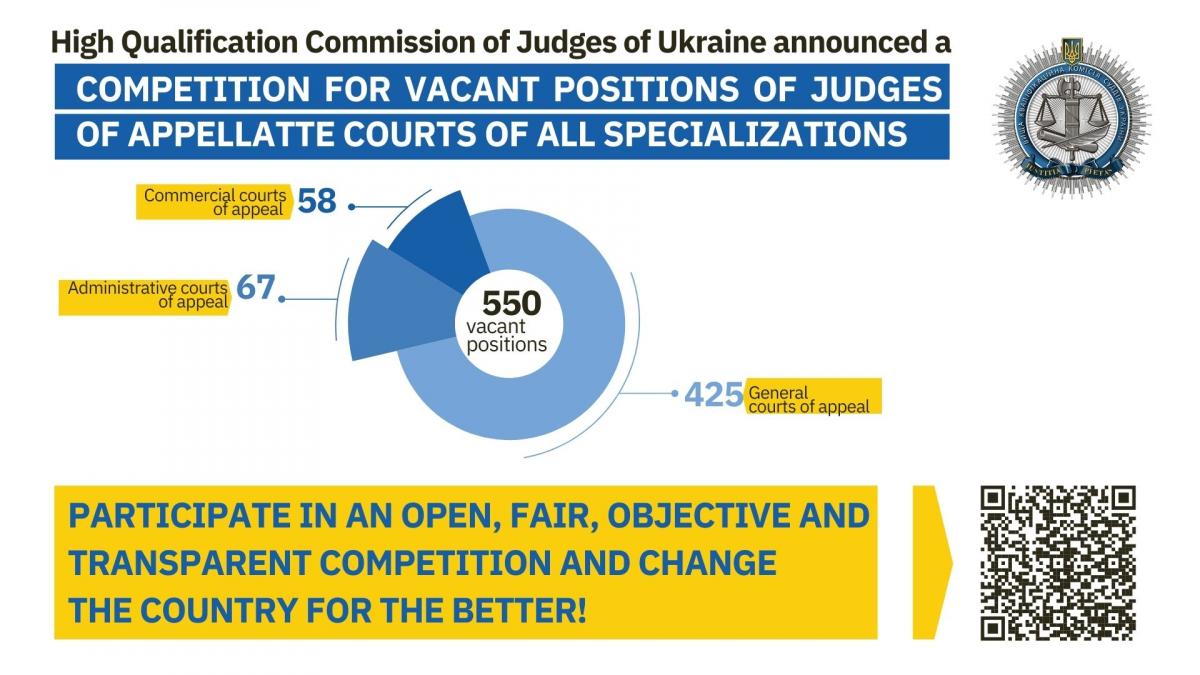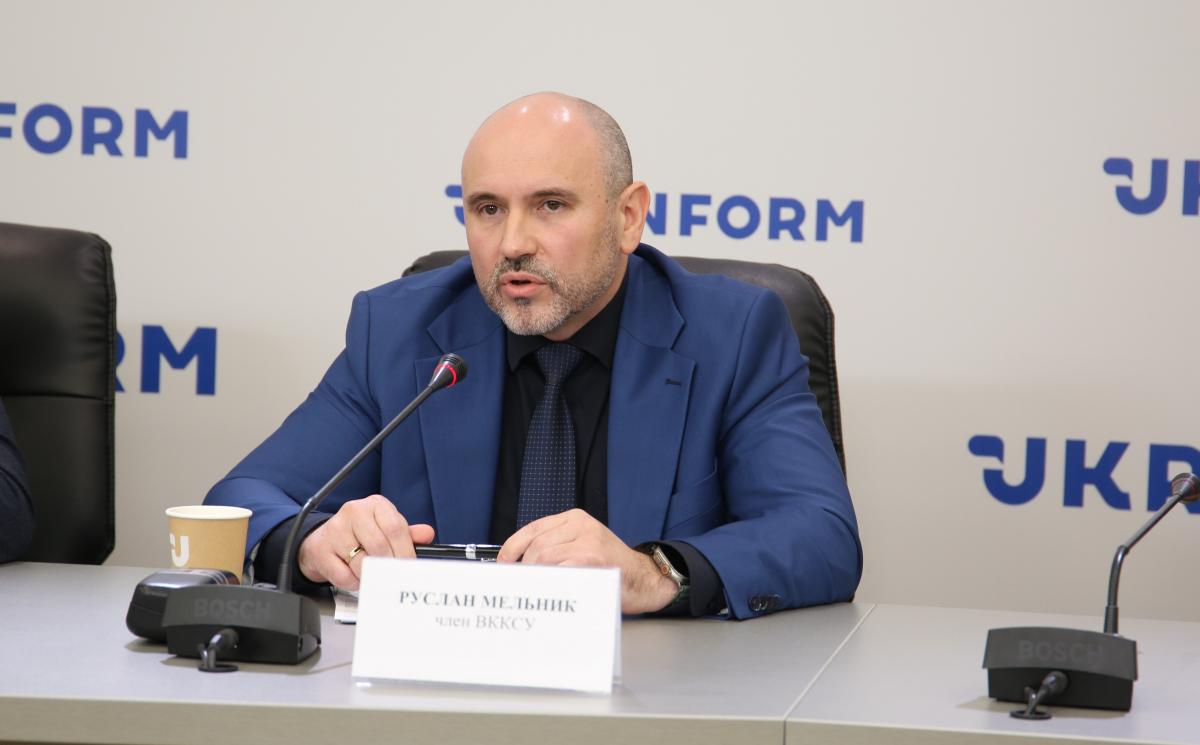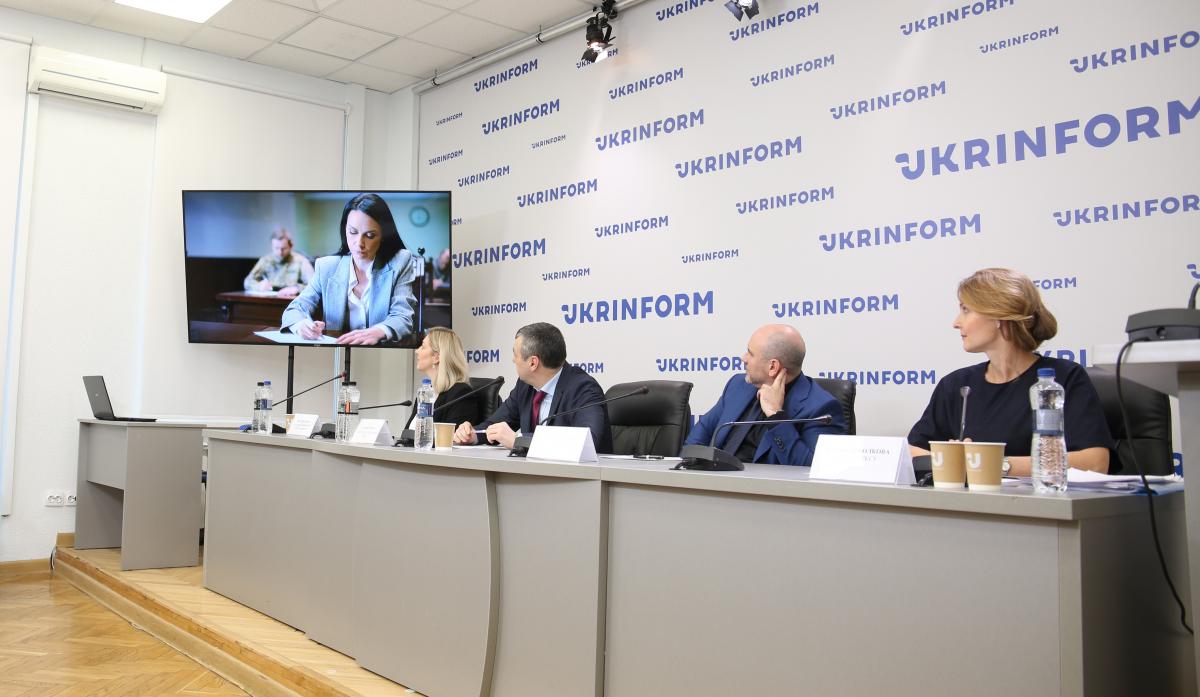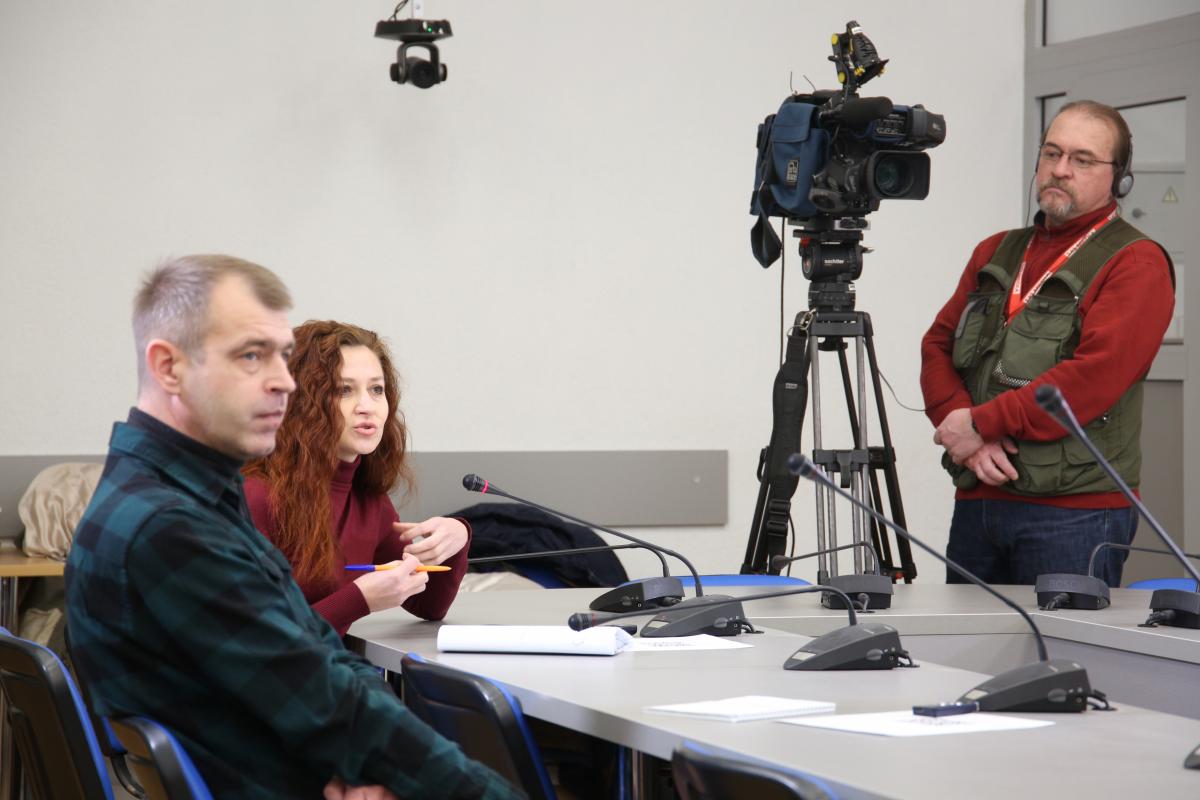
On December 15, 2023, the High Qualification Commission of Judges of Ukraine launched an unprecedented open competition to fill 550 vacant positions of appellate court judges.
The Commission is mindful of its crucial role and responsibility in accelerating Ukraine’s European integration processes, considering that the right to a fair trial is a key European democratic value, and the main task of the HQCJ is to provide the judicial system with judges, i.e. access to justice for Ukrainian citizens.
Judicial staff shortage: figures and facts.
In total, the system of appellate courts currently lacks more than half (56%) of judges. In terms of jurisdictions, the largest number of vacancies – 425 – are in general courts of appeal, 67 vacancies in administrative courts of appeal, and 58 vacancies in commercial courts of appeal.
General jurisdiction
Ten general courts of appeal are staffed by less than 44%. The least staffed are Sumy Court of Appeal – 16%; Kharkiv Court of Appeal – 22%; Cherkasy Court of Appeal – 30%.
Commercial jurisdiction
Among the commercial courts of appeal, three courts are staffed by less than 55%. The Central Commercial Court of Appeal is the least staffed at 30%.
Administrative jurisdiction
Three administrative courts of appeal are staffed by less than 60%. The least staffed is the First Administrative Court of Appeal – 33%.

Causes and consequences of half-empty courts.
The main reason for the lack of judges was the termination of the powers of the HQCJ members in November 2019. The Commission, accordingly, has not been fulfilling its powers for the past 3.5 years, which has led to a catastrophic situation with citizens’ access to justice. No judges have been appointed to the courts of appeal in the last 10 years. At the same time, the number of working judges continued to decline as judges reached retirement age, resigned for health reasons, or left the bench on their own accord or for other reasons.
The consequences of the staff shortage are negative for both citizens and Ukraine’s international image.
Citizens suffer from the fact that court proceedings on vital decisions (e.g., divorce, inheritance of property, reinstatement at work, recognition of birth or death, etc.) take too long, and the quality and depth of proceedings suffer due to the massive workload of judges.
The European Court of Human Rights continues to state that Ukraine has violated the time limits for consideration of cases, which negatively affects the assessment of the Ukrainian judicial system by international partners.
An unprecedented competition and an ideal candidate for the vacancy of an appellate court judge.
The HQCJ is challenged not only to satisfy the acute staff shortage in the judiciary but also to recruit honest, impartial, motivated professionals from the academic, legal and judicial communities.
The competition that is about to start is unprecedented for several reasons. Firstly, the fact that a competition for the positions of appellate court judges is being held is historic. Previously, judges to the Court of Appeal were appointed by the Verkhovna Rada of Ukraine. This was a non-transparent and slightly politicized process. Secondly, the number of judges to be selected by the HQCJ in an open competition to fill 550 vacant positions of appellate court judges is unprecedented, which will make up 56% of the total number of appellate judges in Ukraine. Thirdly, the HQCJ is principled in its attitude to the issue of integrity during the competition and will conduct the selection of judges in cooperation and partnership with civil society. Society will be represented by the Public Integrity Council, which will conduct a comprehensive integrity check of the candidates.
“The HQCJ expresses a clear, uncompromising position on thoroughly checking the integrity and pro-Ukrainian position of candidates. This is our professional, civic and ethical duty to Ukrainians, citizens serving in the defence forces, including our legal colleagues who are now defending the country at the warfront”, — said Ruslan Melnyk, Secretary of the First Chamber of the HQCJ, at a press conference on December 15, 2023.
The competition is open to judges, lawyers (attorneys), law school professors, and scholars who meet the qualification requirements. This is an opportunity for legal professionals to realize their career aspirations and ideas as an appellate court judge, to change the judicial system and, accordingly, to contribute to the transformations and changes in the country that the Ukrainian people expect and are fighting for at the frontline.
Participation procedure and approach to candidate evaluation.
The HQCJ is fully aware of the significant investment of time and effort that will be required from the candidates to participate in the competition and expresses a clear position that the candidates will be evaluated in accordance with clear, understandable and unambiguous criteria in a fair and impartial manner.
Stages of participation in the competition:
1. Submission of an application for participation in the competition, a questionnaire and documents required by the terms of the competition, which, in particular, confirm the candidate’s compliance with the requirements. This will take place electronically (December 15–31, 2023).
2. Verification of the complete set of documents, length of service, and determination of a person’s compliance with the requirements for a candidate for the position of a judge of the Court of Appeal. Based on the results of this check, the candidate is admitted to the qualification evaluation.
3. In order to participate in the competition for the position of an appellate court judge, a candidate for the position of a court of appeal judge is evaluated, including an exam. In accordance with the amendments to the relevant law, this includes anonymous testing and practical assignments. Anonymous testing is conducted in relation to cognitive abilities, general knowledge in the field of law and each specialization of the court: administrative, commercial and general (civil and criminal). Practical assignments are conducted for each of these court specializations.
A judicial candidate shall be deemed to have passed the qualification examination if he/she scores at least 75 per cent of the maximum possible score for each test and practical assigments of the qualification examination.
4. A special background check is conducted on judicial candidates admitted to the stage of dossier research and qualification evaluation interviews.
5. Based on the results of the qualification evaluation of a candidate for the position of an appellate court judge, the Commission decides whether or not to confirm the candidate’s ability to deliver justice in the relevant court and determines his/her rating for participation in the competition.
6. The participant of the competition who has the highest rating is determined.
It is important to note that the test qualification tasks will be checked by a computer without any human intervention. The integrity of the candidate will be evaluated by the Public Integrity Council. The HQCJ has already developed a detailed questionnaire for a candidate for the position of judge. It will also investigate the candidate’s motives for participating in the competition. Currently, work is underway on about 7,000 professional test tasks and practical exercises for the professional exam.
The criteria and procedure for scoring will be available and open to the public.
Violation of the procedure for conducting the qualification examination in respect of a candidate for the position of a judge may be appealed in court, as well as the decision taken on the basis of the results of the qualification evaluation.
“The key idea of the judicial reform is that most cases, including commercial and administrative ones, should be finally resolved at the appellate review stage. To implement this idea, public confidence in the courts of appeal and their judges must be unshakable. An open competition should restore public trust in the courts and enable the best of the best to join the judiciary and change it in line with the fair expectations of society”, — summed up Liudmyla Volkova, a member of the HQCJ.





